What makes a book compelling? Join me in developing our “Eyes and Ears” for finding compelling stories.
I missed posting last week because I’m fully engrossed in novel writing and editing. Managed to pull my head out long enough to write about a timely subject: Politics.
Naturally, you get to vote. The poll is at the end.
If you’re looking for an endorsement or criticism of any candidate, you’ll be disappointed. There’s plenty elsewhere. This post is about real politics in the fiction we read.
What if, when reading an engrossing novel, you run into real politicians in roles in the story? Not the likes of Abraham Lincoln: Vampire Hunter, but live politicians. Do you keep going, maybe because you align with them, or perhaps to learn another viewpoint? Or do you stop because you’d rather not pollute your reading for pleasure with too much of the real world?
As we’ll see below, this is not an abstract question. There are actual novels falling into this category.
I’ll add, this question resonates personally because my novel-in-the-works has a politician as a minor character, but one that plays an important role. The problem of how to handle it is front and center in my mind. The solution proved easy, since the character isn’t based on any real person. David Baldacci ran into the same situation in his Absolute Power, about a fictional President involved in a murder and a massive cover-up as the accidental eyewitness tries to survive.
First, some perspective.
Opportunities abound to read about real politics. The nonfiction arena is filled with autobiographies, biographies and, in visual media, the so-called biopic (biographical picture) movie. A fine example is “Darkest Hour,” about the British government enduring an existential crisis as German armies push the British army into the sea around Dunkirk and France capitulates. They change Prime Minister during the crises and, holding their noses, pick Winston Churchill, a career politician detested by many for his vices and errors in judgment.
The point being, no one is unpleasantly surprised when picking up such a title. The reader knows going in politics is key to the story, some of which, it being politics, is actually true.
Our perspective broadened, time to move on to the topic at hand: Fiction.
Fiction seems to run a narrow spectrum, with books like Absolute Power using fictional politicians on one end and books like All The King's Men, by Robert Penn Warren, further along the spectrum. All the King’s Men tells about the fictional Louisiana Governor, Willy Stark. Warren taught at LSU in the 1930s and the book is widely acknowledged to be a portrayal of the real Huey P. Long.
I recently reviewed Mr. Texas, again about a fictional character, Sonny Lamb. The author, Lawrence Wright, admits Lamb is based on many people, but most closely on the real Dr. Glenn Rogers, a state representative. By the way, Rogers later lost reelection to a vastly better funded opponent of the same party, making Mr. Texas look eerily prescient in its depiction of behind-the-scenes money.
Robert Harris wrote The Ghost about a British Prime Minister who carries out a secret agenda. Like All the King’s Men, the fictional PM, Adam Lang, is based on a real person, in this case, Tony Blair.
So, a few fiction writers take the story close to real politics, but still use fictitious characters.
Then we have Stephen King’s Holly. Holly is a private investigator, hired to look into the disappearance of someone. Holly suffers from the recent loss of her mother, even though the two were close only in terms of being like sandpaper on one another.
King wrote the book in 2022, fully aware of Donald Trump’s intent to run again. Here is Holly, reeling from losing her mother to Covid in a nursing home, responding to someone:
“And booster vaccines are coming. First, for people with bad immune systems and people over sixty-five, but I’m hearing at school that by fall it’ll be everyone.”
“That sounds right,” Holly says.
“And bonus! Trump’s gone.”
Leaving behind a country at war with itself, Holly thinks. And who’s to say he won’t reappear in 2024? She thinks of Arnie’s promise from The Terminator: “I’ll be back.”
There are other references to Trump throughout, and it’s clear what King’s own thinking is. In fact, this isn’t the first book King has commented, via his fiction, on Trump. Judging from the reviews, he’s lost a few readers.
At the tail of the book, King defends his choice to interject anti-vaccination politics into the story. He says it’s central to the story-line. Let’s give him that. But is it central to put a live politician into the story, which doesn’t play out on a national scale, but a local one? The horror in Holly is an elderly professorial couple teaching at a local college, who kill people for twisted reasons. Lots of room to fly there, but King focused on the real person.
I loved Holly for its storytelling. I’m still learning the craft and the book strikes me as an excellent example. Not that I’ll take and use everything because emerging fiction writers risk ticking off prospective readers by bringing in real politics.
What about you?
All the Best,
Geoff
If you enjoyed this post, please hit the heart “❤️” so others can find it. It’s at the bottom and at the top.

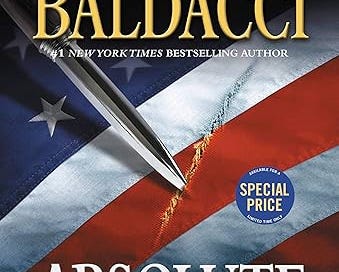




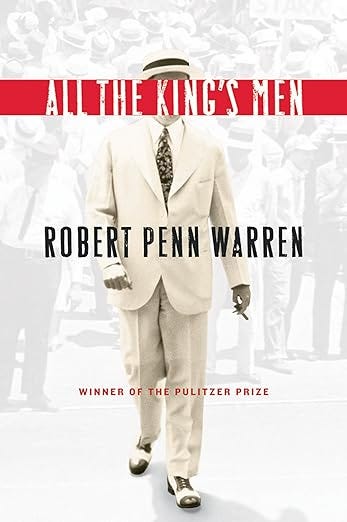
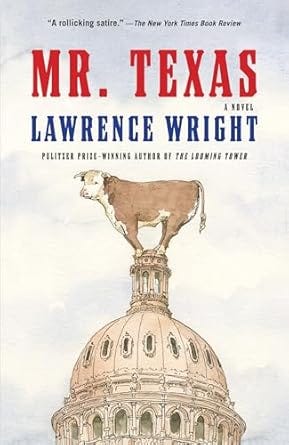
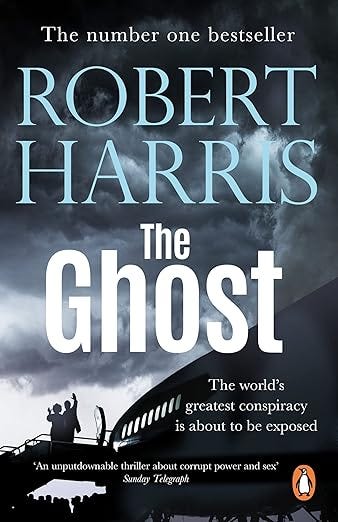
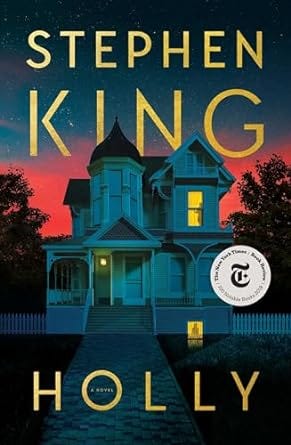
"JIMMY CRACKED CORN".
Interesting to think about. I didn't do the poll because I don't know the answer. I enjoyed "Holly", but then King's politics match my own. So maybe there's the answer?